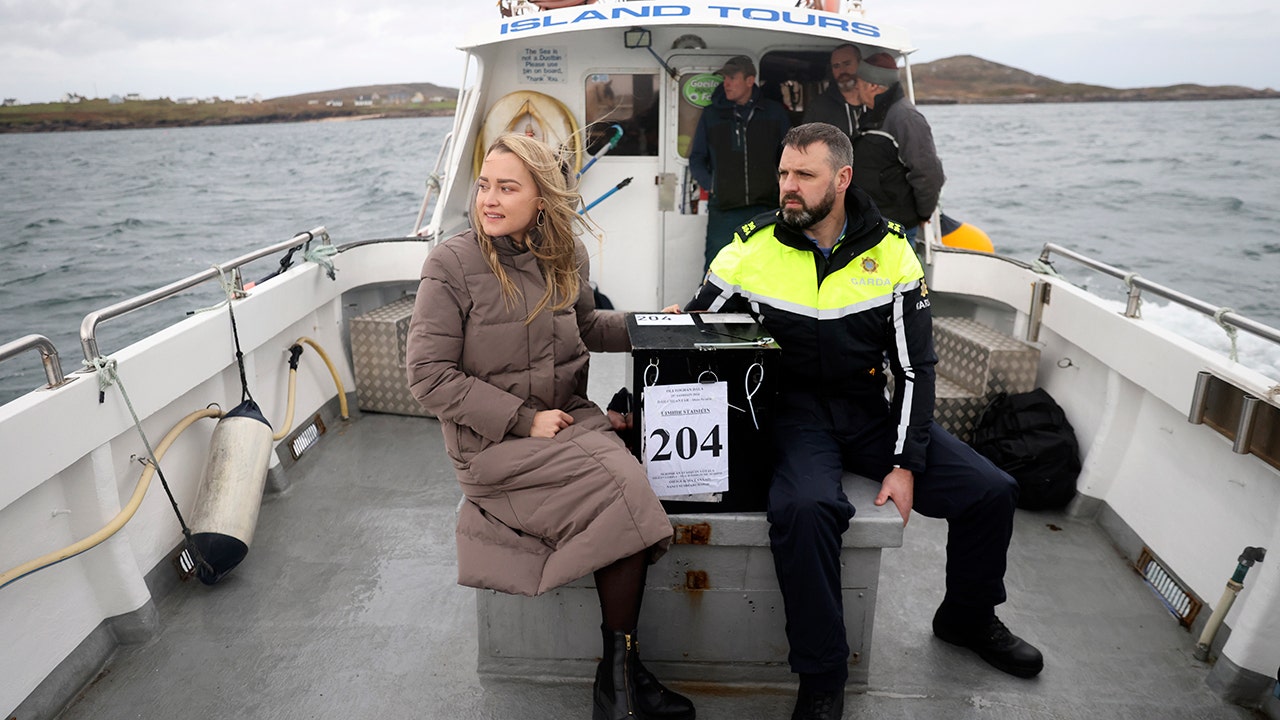A close-run election takes place in Ireland as incumbents aim to maintain their hold on power.
The nation's 3.8 million citizens are casting their ballots.

On Friday, Ireland will hold a parliamentary election to determine its next government and reveal whether it defies the global pattern of incumbents being ousted by dissatisfied voters following years of pandemic, international turmoil, and cost-of-living strain.
At 7 a.m. (0700GMT), Ireland's 3.8 million voters began choosing 174 lawmakers to serve in the Dail, the lower house of parliament.
An examination of the parties, problems, and predicted results.
Who’s running?
The two parties that have long dominated Irish politics, Fine Gael and Fianna Fail, led the outgoing government. Although they share center-right policies, they are historical rivals with roots on opposite sides of Ireland's 1920s civil war.
Following the 2020 election, Fianna Fail and Fine Gael formed a coalition, with Micheál Martin serving as premier for the first half of the term and Leo Varadkar taking over in December 2022. However, Varadkar unexpectedly resigned in March, and Simon Harris was appointed as the new Taoiseach.
In the 2020 election, Sinn Fein made a remarkable comeback, winning the most votes, but was denied a place in government due to Fianna Fail and Fine Gael's refusal to collaborate with them, citing their leftist ideology and historical links with the IRA during the 30-year conflict in Northern Ireland.
In Ireland's proportional representation system, each of the 43 constituencies elects multiple lawmakers, allowing voters to rank their preferences. This makes it easier for smaller parties and independent candidates with a strong local following to gain seats.

The election features a diverse array of independent candidates, including local campaigners, far-right activists, and notorious crime boss Gerry "the Monk" Hutch.
What are the main issues?
The housing crisis has been a major issue in Ireland's election campaign, resulting from a failure to construct enough new homes during the "Celtic Tiger" era and the subsequent economic downturn following the 2008 global financial crisis.
According to John-Mark McCafferty, CEO of Threshold, no buildings were constructed during the crisis, and after the crisis subsided, offices and hotels were the first to be built.
The result is soaring house prices, rising rents and growing homelessness.
McCafferty stated that Ireland has resources, including 13 billion euros ($13.6 billion) in back taxes ordered by the European Union for Apple to pay, but it is working to address significant historical infrastructural deficits.
The housing issue is intertwined with immigration, a contemporary problem that has arisen in a country known for its history of emigration. Over 100,000 Ukrainians have recently arrived due to war, and thousands of people have fled poverty and conflict in the Middle East and Africa.
Ireland, with a population of 5.4 million, has faced challenges in providing housing for asylum-seekers, resulting in the establishment of tent camps and makeshift accommodation centers. This has led to tension and protests. In 2019, a stabbing attack on children outside a Dublin school, in which an Algerian man was charged, resulted in the worst rioting Ireland had seen in decades.
While Ireland lacks a substantial far-right party, far-right voices on social media are attempting to incite hostility towards migrants. Anti-immigrant independent candidates are also hoping to secure election in several districts. This issue seems to be affecting Sinn Fein's support, as working-class voters are expressing dissatisfaction with its pro-immigration policies.
What’s the likely outcome?
According to opinion polls, voter support is evenly distributed among five groups: Fine Gael, Fianna Fail, Sinn Fein, smaller parties, and independent candidates.
Despite Fianna Fail's steady performance and Sinn Fein's momentum, Fine Gael's campaign has been marred by gaffes. However, Sinn Fein may not win power unless the other parties drop their opposition to working with them.
It is predicted that the most probable result is a Fine Gael-Fianna Fail coalition, possibly with a smaller party or a group of independents as deciding factors.
"According to Eoin O'Malley, a political scientist at Dublin City University, the formation of a coalition is simply a matter of determining which minority group will support the government this time. Coalition-forming is essentially about adding a color to what is essentially a middle-of-the-road government every time."
When will we know the results?
The exit poll on Friday at 10 p.m. (2200GMT) will provide the first hints about the election result. Ballot counting will begin on Saturday morning, and full results may take several days to be announced. Forming a government could take days or weeks after that.
Harris, who voted in Delgany, south of Dublin, stated that Irish voters and politicians face a "long few days ahead of us."
"The complexity of our system is such that even though there will be an exit poll at 10 o'clock tonight, it won't reveal the election outcome," he remarked.
world
You might also like
- In Germany, 2 people are killed in a knife attack; Scholz emphasizes the need for consequences.
- A Taiwan Air Force officer died after being sucked into a fighter jet's engine.
- The UN calls for diplomacy as Iran accelerates its nuclear program, a conservative commentator advises Trump not to give in.
- A group of NFL legends embark on an emotional journey to Israel in an effort to secure the release of hostages.
- Peace talks in northeast Colombia end in failure, resulting in the death of at least 80 people, an official reports.



















